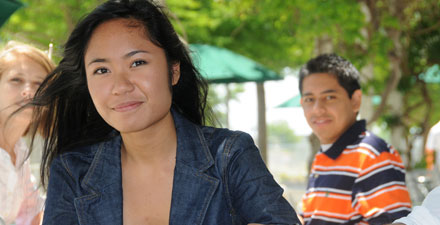
As a current student, there are some routes for employment available: on-campus work in positions related to student services, Curricular Practical Training (CPT) (requires DSO approval), or Optional Practical Training (OPT) (requires DSO recommendation and government approval), or economic hardship (discussed below).
Inquire about on-campus opportunities through the Lone Star job search site. These job opportunities are sometimes also posted on bulletin boards around the campuses, usually during the start of the semester.
You need a Social Security Number to work on-campus.
U.S. Social Security Numbers are approved for people who are authorized to work in the United States. These numbers are used to report your wages to the US government and to determine eligibility for Social Security benefits. If you are temporarily in the United States to attend college, with a nonimmigrant F-1 student classification without an on-Campus work authorization, you cannot apply for U.S. Social Security Number. The Social Security Administration will not assign you a number just to enroll in college or school. Please talk to your International Student Advisor before applying for social security.
F-1 students are allowed to work up to 20 hours on campus while enrolled as a full-time student. You can work full-time (40 hours) during summer vacations and between semesters, provided you continue at the same school for the following semester. You cannot work on campus if you are changing your status, or if you are enrolled in less than 12 credits unless it is your last semester and you have completed an exception form, please discuss with your International Student Advisor. On-campus work in a student worker position is prohibited if you are on OPT even if it is related to your field of study.
Economic Hardship
International students can apply for a work permit to work off-campus based on severe economic hardship who endured unforeseen financial difficulties to remain in school and continue their education. Severe economic hardship include loss of scholarship, the substantial fluctuation in the value of foreign currency or exchange rates, tuition increase, medical bills, sponsorís inability to fully support and other unforeseen hardship. The DSO has to recommend economic hardship and the application has to be approved by the government.